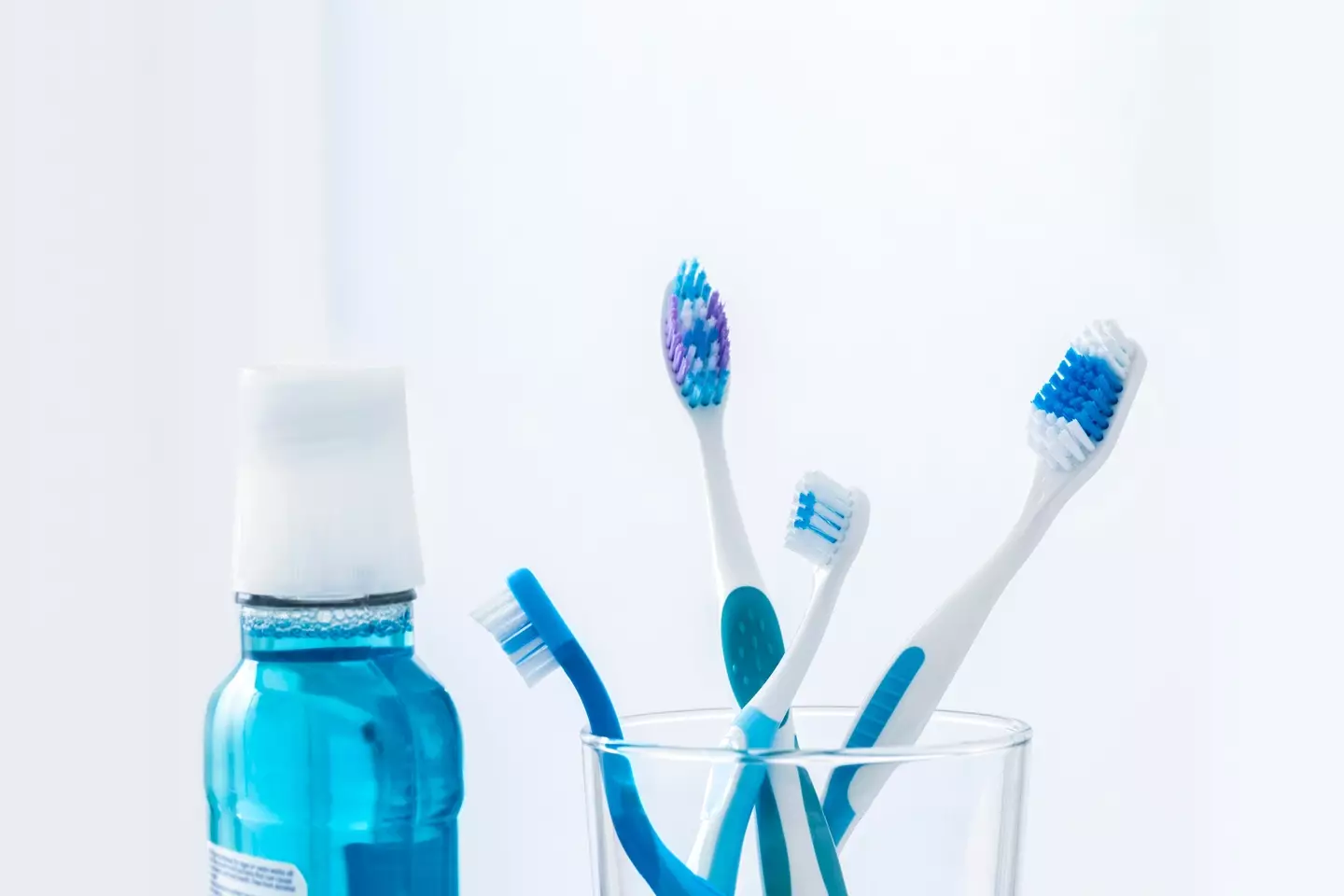Anyone using mouthwash immediately before or after brushing their teeth is being warned to stop immediately, with one dentist issuing advice on why this is really bad for your teeth.
It is commonly known that using mouthwash can help protect your teeth and stave off tooth decay.
But using it half an hour either side of brushing is a massive no-no, with it leaving you wide open to self-inflicted harm.
Doctor Zaeem, from electric toothbrush manufacturer Ordo, has issued advice on this and why you should avoid using the substance during this time frame.
Last week, the same dentist issued a warning to those who brush their teeth in the shower. And again, it is not good news if that is you.
On using mouthwash, Dr Zaeem explains that it all comes down to the chemicals in the toothpaste and mouthwash and what taking the latter does.
Dr Zaeem says: “Mouthwash certainly isn’t a replacement for brushing your teeth. However, if looking for fresher breath and a quick clean during the day, then mouthwash is perfect.”

You should avoid mouthwash 30 minutes before or after brushing (Getty Stock Images)
He adds: “Mouthwash should be used at least 30 minutes before or after brushing. This is because, even though some mouthwash products contain fluoride, it is usually not as concentrated as dedicated fluoride toothpaste.
“Therefore, if you use mouthwash straight after brushing, you’re essentially diluting the fluoride which reduces its protective capabilities.”
The NHS has echoed the advice of Dr Zaeem, with it an absolute no-go when it comes to using mouthwash in the immediate aftermath of brushing your teeth.

Using mouthwash after lunch is a better time (Getty Stock Images)
“Using a mouthwash that contains fluoride can help prevent tooth decay, but don’t use mouthwash (even a fluoride one) straight after brushing your teeth or it’ll wash away the concentrated fluoride in the toothpaste left on your teeth,” the health service says.
Instead, the NHS advises you to ‘choose a different time to use mouthwash, such as after lunch’.
It also recommends you do not eat or drink for 30 minutes after using a fluoride mouthwash, so that fluoride stays on your teeth.
This is incredibly important given that fluoride – which is a mineral – can greatly improve the health of your teeth by strengthening the tooth enamel, making it more resistant to tooth decay.
At the same time, it acts as a barrier between your teeth and acidic food and drink, as well as reducing the amount of acid produced on your teeth by bacteria.

Trips to the dentist will be less expensive if you look after your teeth (Getty Stock Images)
As well as avoiding mouthwash 30 minutes either side of brushing, Dr Zaeem says you should also look at changing the head on your toothbrush on a regular basis.
“A worn toothbrush or brush head removes less plaque compared to a new toothbrush or brush head,” he says.
“You should be replacing your brush heads every two to three months, this also applies for manual toothbrushes too.
“However, whilst the average is two to three months, if your toothbrush is visibly frayed you should replace it immediately, as worn bristles are less effective at removing plaque and it could be detrimental to your oral health.”
